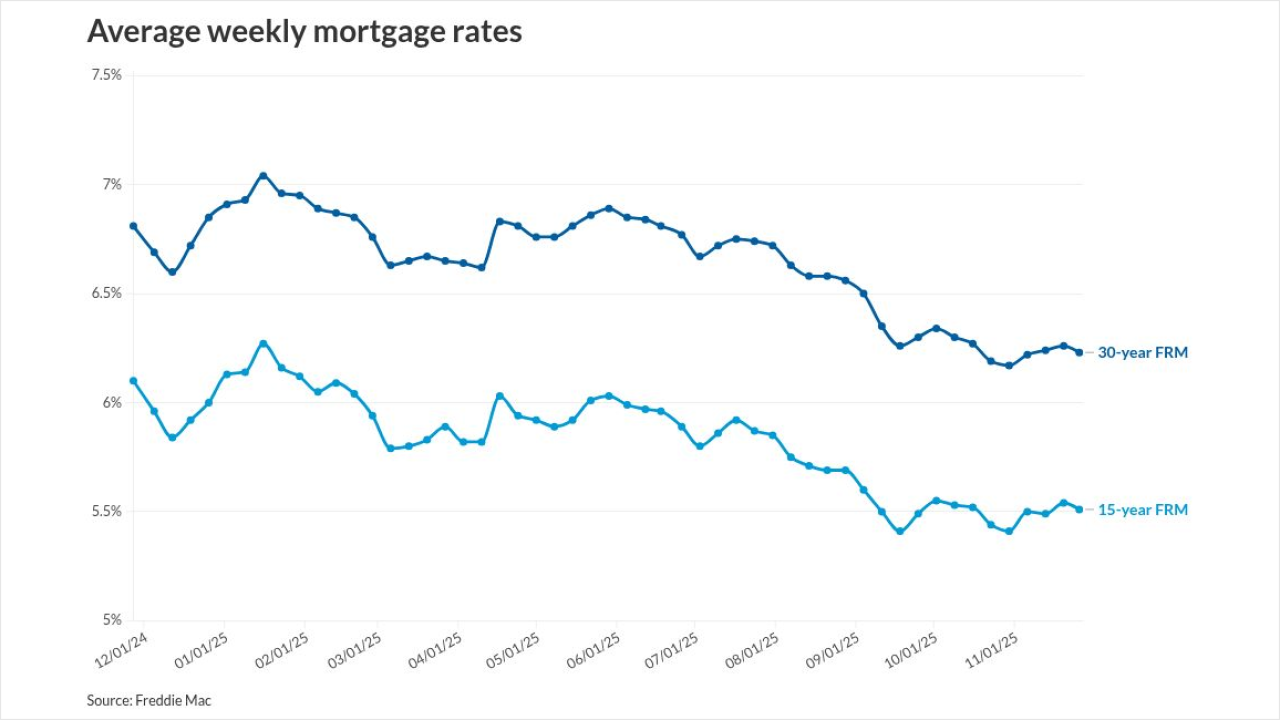More than 180 banks, credit unions and financial holding companies will receive $8.7 billion in federal dollars as part of a pandemic-era program meant to increase access to capital in underserved communities.
The investments — made through the Treasury Department’s Emergency Capital Investment Program — will go exclusively to firms that are designated as either community development financial institutions or minority depository institutions.
The program is part of the Treasury’s effort to provide financial support to communities that are struggling through the pandemic, particularly communities of color that have been disproportionately impacted by the health crisis.

The goal is to funnel capital to financial institutions, which can then provide loans, grants and forbearance options to customers. In a press release Tuesday, Treasury said the funds will be used to increase lending to small businesses, minority-owned businesses and consumers with low and moderate incomes in underserved areas, including rural communities.
“These CDFIs and MDIs serve communities that the financial sector historically hasn’t served well, and most of the time, those are communities of color,” Treasury Secretary Janet Yellen said in a speech Tuesday.
“If you’re a Black or Hispanic or Asian or Native entrepreneur, we know it’s harder to get your hands on funding,” she said. “This has been particularly true during the pandemic.”
Yellen was speaking at the 2021 Freedman’s Bank Forum, which honored the legacy of the 19th-century Freedman’s Bank and highlighted federal initiatives to address the racial wealth gap.
Hope Credit Union in Jackson, Mississippi, is slated to receive $88 million from Treasury, an amount that founder and CEO William Bynum called a "game-changer."
"Capital is not easy to come by in communities like the ones we serve," said Bynum, whose institution's footprint covers Mississippi, Alabama, Arkansas and Tennessee.
The $424.3 million-asset Hope, which is a minority depository institution, will use the capital infusion to make more small-business loans and home loans, Bynum said.
"It's a lifesaver," he said. "It took Hope 14 years to reach $80 million of assets. Now, in one investment, we're receiving $88 million of capital. We can grow our deposit base and serve many more people across the Deep South."
Since the start of the pandemic, the Treasury Department has pledged $12 billion in emergency funding to community development financial institutions and minority depository institutions. In addition to the Emergency Capital Investment Program, a Treasury program that was launched in February has made $1.25 billion in grants available to CDFIs.
The investments announced Tuesday range in size from less than $100,000 to more than $200 million, with banks receiving 54% of the total and credit unions receiving 46%, Treasury said. The 186 recipients are located in 36 states, plus Washington, D.C., and Guam, according to the department.
Of the $8.7 billion total, $3.1 billion is being offered to 57 minority depository institutions, Treasury said.
Congress enacted the Emergency Capital Investment Program by passing a 2021 appropriations law, and Treasury
A total of 204 banks, credit unions and savings and loan holding companies applied for investments of $12.9 billion, Treasury said in October.
Treasury’s investments in the participating financial institutions can take one of two forms: senior preferred stock or subordinated debt. Both may be redeemed by the financial institutions on or after the fifth anniversary of their issuance, subject to regulatory approval and in accordance with capital rules.
In most cases, preferred stock will be issued, and the investments will not affect the governance or control of the institutions, according to the National Bankers Association, which represents minority-led and minority-owned banks. Subordinated debt will go to credit unions and banks that are classified as subchapter S corporations, the trade group said.
The National Bankers Association called Treasury’s investment in minority depository institutions and their communities “unprecedented.”
However, not all MDIs were eligible to participate in the program, said Nicole Elam, the group’s president and CEO. She encouraged the use of a fund
“Closing the racial wealth gap is a significant task that requires the inclusion and funding of all MDIs,” Elam said in a statement.
John Reosti contributed to this report.




